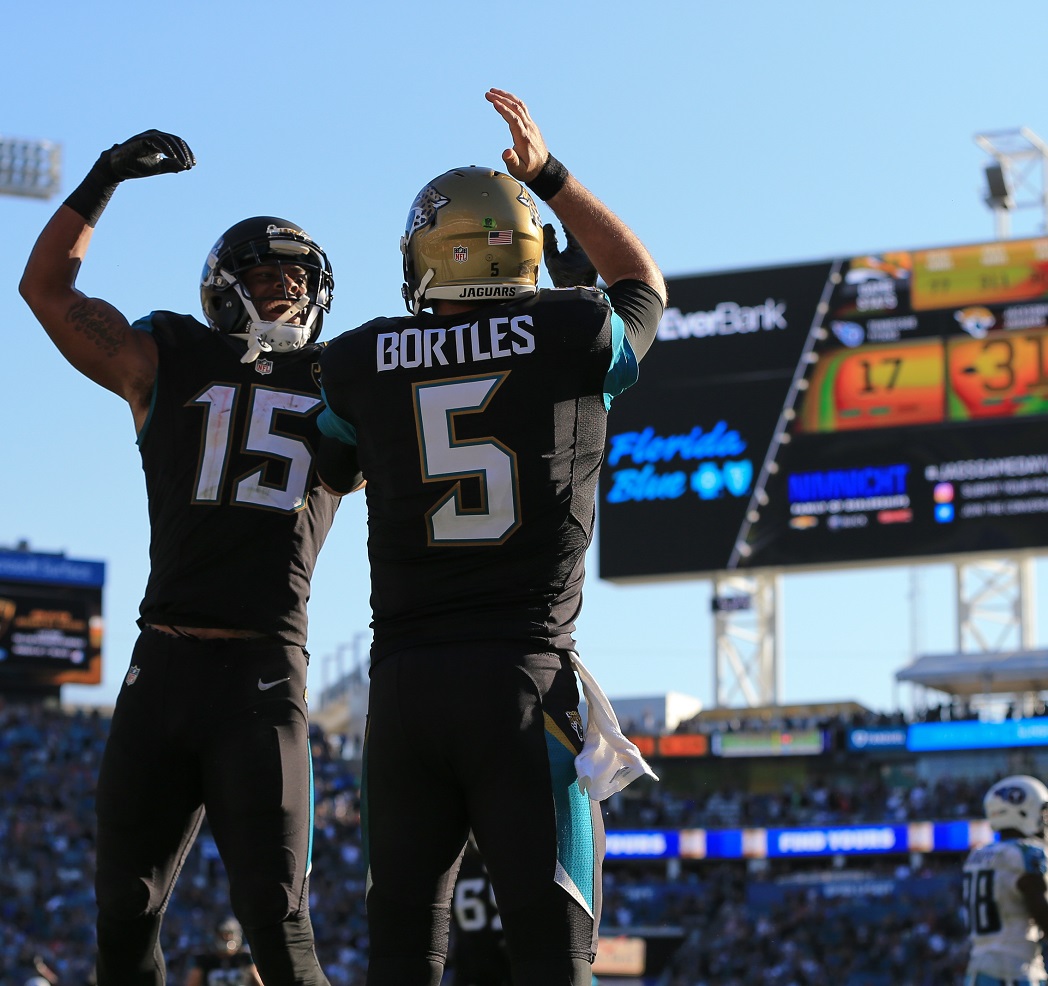Let me start with a confession. I won a home league fantasy championship with Blake Bortles as my quarterback in the 2015 season. It’s kind of a dirty secret, but I know I’m not alone.
Bortles (hilariously) finished that year as the No. 4 fantasy quarterback, thanks largely to his “garbage time” production — e.g. fantasy points scored when the real game was already out of reach. It went like this: The Jaguars — being terrible — would be so far behind by the time the game reached the fourth quarter that they would be slinging it deep downfield in a desperate effort to either A) actually mount a comeback or B) make the final score make the game look more competitive than it really was.
The narrative: QBs and receivers rack up fantasy points if they are losing late in the game.
Fantasy footballers quickly learned not to freak out about Bortles’ putrid fantasy scores until the clock literally read 00:00. We embraced garbage time instead of shying away from it. We ironically loved Bortles as a fantasy option because he was so bad.
But was that actually a smart move? Or did we just get lucky during the 2015 season with Bortles? In general, just how much can we rely on desperation production? Let’s find out.
The research
We don’t need research to know that the overall gist of the narrative is true. If you have a quarterback or receiver and their team is losing, and they are passing the ball more because they are losing, then the additional opportunities are obviously a positive for your fantasy team. Opportunity is never bad.
But that’s the boring way to approach the “garbage time” discussion. So to give this narrative some more oomph, I wanted to look at the quality of garbage time opportunity versus opportunity in a more competitive game.
I looked at all games from the 2015 and 2016 NFL seasons and calculated the score margin in the fourth quarter. I then looked at all passes thrown in the fourth quarterback while the offensive team was either losing (by any amount), or winning by up to 8 points. This provided me with the full gamut of game situations — from one-score leads, to one-score deficits, to full-on blowouts. This way, we could compare garbage-time production (three-score deficits or larger) to more competitive games.

DOMINATE FANTASY FOOTBALL & BETTING WITH AI-POWERED DATA & TOOLS TRUSTED BY ALL 32
 Unlimited Fantasy League Sync
Unlimited Fantasy League Sync
 Fantasy Start/Sit Line-Up Optimizer & Waiver Wire
Fantasy Start/Sit Line-Up Optimizer & Waiver Wire
 WR-CB & OL-DL Matchups, PFF Player Grades, & Premium Stats 2.0 Tools
WR-CB & OL-DL Matchups, PFF Player Grades, & Premium Stats 2.0 Tools
 Nathan Jahnkes Rankings - #1 Most Accurate Last 70 Weeks
Nathan Jahnkes Rankings - #1 Most Accurate Last 70 Weeks
 PFF Best Bets, Player Props, & Power Ranking Tools
PFF Best Bets, Player Props, & Power Ranking Tools
 NFL Mock Draft Sim with Trades & Draft Grades
NFL Mock Draft Sim with Trades & Draft Grades
Already have a subscription? Log In



 © 2024 PFF - all rights reserved.
© 2024 PFF - all rights reserved.